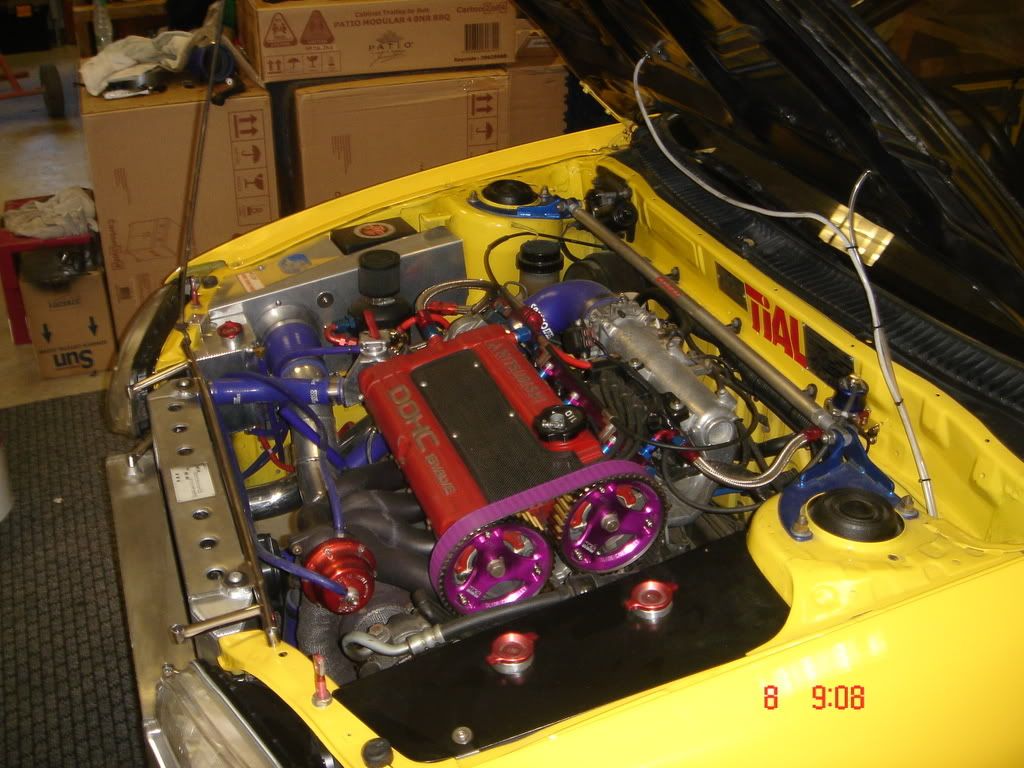Strut Brace attachement
Posted: April 9th, 2009, 6:55 am
I have seen alot of different styles of strut brace attachment on various vehicles, some aspects appear to be more for ease of installation e.g two piece with a threaded adjustable section in between, But there are a number of other designs I am looking at and trying to decide which will be best for my 131.
the main styles I see are
- strut bar welded directly to top plates which bolt to the strut top mounting bolts

I can see this would be a "stiffer" installation (no pivot points) but its harder to install or remove (have to partly dissasemble suspension to get engine out)
- strut bar bolted at each strut top on front to rear axis of car

in theory may allow some movement as the bolt could be a pivot point (could use spherical bearing), although in practice may or may not be negligible? allows simple removal of brace for engine access
- strut bar bolted to top plates with bolt/stud in vertical axis

similar to above but pivot on different axis (would have almost identical effect if spherical bearing used?) again, easy removal.
Other additional braces or features
- Strut bar also bolted to firewall/scuttle panel
- additional diagonal braces ala 131 abarth

I don't think it would actually make any measurable difference to my level of racing (trackdays and club hillclimbs) but I'm still interested in what (if any) benefits of the various designs are.
the main styles I see are
- strut bar welded directly to top plates which bolt to the strut top mounting bolts

I can see this would be a "stiffer" installation (no pivot points) but its harder to install or remove (have to partly dissasemble suspension to get engine out)
- strut bar bolted at each strut top on front to rear axis of car

in theory may allow some movement as the bolt could be a pivot point (could use spherical bearing), although in practice may or may not be negligible? allows simple removal of brace for engine access
- strut bar bolted to top plates with bolt/stud in vertical axis
similar to above but pivot on different axis (would have almost identical effect if spherical bearing used?) again, easy removal.
Other additional braces or features
- Strut bar also bolted to firewall/scuttle panel
- additional diagonal braces ala 131 abarth
I don't think it would actually make any measurable difference to my level of racing (trackdays and club hillclimbs) but I'm still interested in what (if any) benefits of the various designs are.